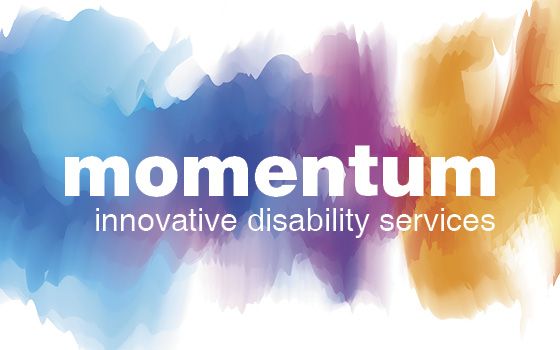
Guest Blog – Growing our Community: Why Professionals with Disabilities Matter
Our National Developmental Disabilities Awareness Month focus on employment continues with a thought-provoking piece from Stuart Pixley, a longtime disabilities advocate and attorney for Microsoft, a company that has made a conscious effort to prioritize inclusion.
 In my day job, I am fortunate to work as an attorney for Microsoft serving engineering and business teams focusing on quantum computing and next generation semiconductors that will power our future business. I have been even more fortunate to be part of an active community inside and outside of the company to increase legal diversity and, in particular, to ensure that attorneys with disabilities are included in the field and find a welcome home in the profession.
In my day job, I am fortunate to work as an attorney for Microsoft serving engineering and business teams focusing on quantum computing and next generation semiconductors that will power our future business. I have been even more fortunate to be part of an active community inside and outside of the company to increase legal diversity and, in particular, to ensure that attorneys with disabilities are included in the field and find a welcome home in the profession.
Today, I’m far from the only attorney with a disability at Microsoft, and there are now small but growing communities locally and across the country. And still, I appreciate that focusing struggles of attorneys or any other with disabilities in mainstream professions is chipping at the tip of an iceberg. There are, after all, relatively few of us in part because people with disabilities as a whole still battle mighty headwinds for the basics: access to basic services and shelter, a fully inclusive education, adequate support services and meaningful opportunities for entry level employment.
With so much foundational work still to do why now focus any precious advocacy attention on professionals? I believe professionals with disabilities matter now because their success and thrive has unique ability to establish a bulwark against our headwinds: they are a force for the normalization of disability in society, for demonstrating our potential and tenacity, and most importantly for enlarging our community as a community and bringing it full circle.
More than any other diverse group we are stigmatized by lowered expectations, stereotypes of helplessness and assigned roles only as the cared-for and not as a provider or care giver. And I have long thought that a vibrant community of professionals with disabilities could change tall that – teachers, businessmen, doctors, lawyers and architects can awaken policy makers, institutions and communities to our possibilities and recognition that meaningful investment in basic disability rights, disability empowerment and disability inclusion in all its forms is an investment that pays meaningful dividends. But that can only happen, with strong voices and strong voices need safe places to be heard.
But outreach to and for professionals with disabilities must be about more than enabling action at a distance, creating and projecting images and role models for the able bodied to appreciate and other people with disabilities to emulate an aspire to. We cannot and should not just cheer each other on from the sidelines. We must engage, bring together our communities or perhaps more accurately make our larger community whole.
It has always struck me that the beating heart of disability pride and positive disability identity has been strongest among those who must fight and continue to struggle every day for basic rights, access and opportunity, and less from those who have benefited from that struggle. Why has that been relatively rare among people with disabilities in mainstream professions? Is it a lack of concern for our brethren that are less fortunate? Is it because, having achieved the ability to survive, they do not see the need to be included and to thrive as an imperative worthy of equal dignity? Or perhaps it’s just a need to fit in and not to be the “other”. Personally, I think it is largely about having community and lack of community.
Throughout my own life I’ve been blessed to be a member of many disability communities. Before going to law school I worked as a lay advocate in independent living centers in Riverside and San Diego where I learned disability history and disability rights. Before that, in my very small college I had the improbable luck of becoming good friends with two classmates who also had cerebral palsy and were an intimate part of my daily social fabric. And even before that, I had many friends who attended disabled-only schools and whose community I joined each summer at an Easter Seals camp in the Colorado mountains. There was a closeness, sense of shared reliance and people-hood; vibrant and empowering, the same spirit animates our breakthrough civil rights achievements and gives us hope for yet more.